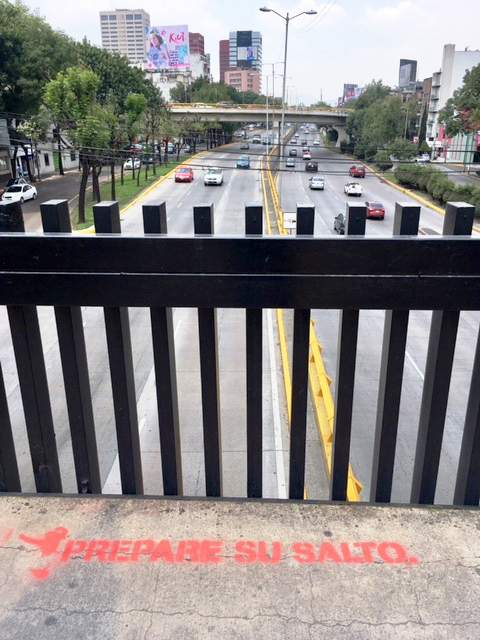 La versión en español está disponible aquí.
La versión en español está disponible aquí.
Recently, I woke up in my brother’s apartment in Mexico City feeling overwhelmed. I had a nightmare.
In my dream, it was a Saturday and I was at Baptist University of the Américas, my place of work. I had scheduled a Latina Leadership Institute board meeting at 10 a.m., and nothing was ready for this meeting. There was no agenda, no reports, no plans for lunch, and board members were arriving. Desperately, I searched for the LLI administrative associate, but could not find her. Then my phone began beeping to remind me that there was a WMU conference in the chapel at 11 a.m., and I was the speaker. I thought, well, perhaps the LLI board members could work on committees, while I ran to speak in the chapel. The problem was that I was not prepared for this speaking engagement either. In fact, I could not even remember the conference’s topic. My phone beeped once more to remind me that there was a group from my church coming to do volunteer work, and I was the leader of this group. In my dream I kept telling myself: “How could I have possibly scheduled these three important events without noticing they were all at the same time?” Thankfully, at that point I woke up from my nightmare.
 With my heart still pounding, I looked for my brother, who suggested we have breakfast in a little restaurant that was in walking distance. The route to this place included crossing a busy highway, through a pedestrian bridge. As we approached the middle of the bridge, suddenly I stopped as I read a sign that said: “Prepare su salto” (Prepare your jump). I stood there for a few seconds, distressed with the morbidity of the sign, and hoping that nobody would take it seriously. Still thinking about my dream, I told my brother: “This is the last thing that I want to see right now.”
With my heart still pounding, I looked for my brother, who suggested we have breakfast in a little restaurant that was in walking distance. The route to this place included crossing a busy highway, through a pedestrian bridge. As we approached the middle of the bridge, suddenly I stopped as I read a sign that said: “Prepare su salto” (Prepare your jump). I stood there for a few seconds, distressed with the morbidity of the sign, and hoping that nobody would take it seriously. Still thinking about my dream, I told my brother: “This is the last thing that I want to see right now.”
After ordering our food, I told my brother about my dream, and as I did that, I started to connect the dots between this dream and real life.
In my ideal world, every year I make plans to take off the month of July. My good intentions are always there, but normally, and after much struggle, my desired one month ends up being only two weeks. This year was no exception. I remembered while planning for this vacation in Mexico, I followed my instinct to be very careful with time and money and decided to include two one-day work related stops. The first days of the trip were challenging: four cities in five days, four different airports, and one road trip. By the time I concluded this marathon of travel, I was very satisfied with the results. However, I was exhausted. Now my anxious dream was making sense!
As I shared the connections between my dream, real life and the impact of the “Prepare your jump” sign with my brother, suddenly my thinking shifted, and I said: “What about preparing a jump to a better life?” I pondered, “What will it take?” I was unable to answer the question that morning, but as I continued thinking about it, the same response kept coming: Changes. Changes. Changes.
I suspect that I am not the only one with these kinds of anxious dreams. Often, I teach seminars on balance, which include paying attention to symptoms of burn out, such as anxious dreams. Regularly the audience smiles or nods in approval of having experienced these dreams.
For me, anxious dreams represent a call to change. But change is hard. Once I heard Dr. Albert Reyes describe that no one likes change, except a baby with a dirty diaper.
Change is difficult because it involves hard work — a multistep process that must be surrounded by prayer and discernment.
First, it requires a vulnerable, painful awareness that something is not right. Often this is hard because it represents a challenge to our way of doing things, our self-sufficiency, and/or arrogance.
Second, after gaining a level of awareness, it requires key questions. For instance in my case: Is this marathon of cities and airports a regular pattern in my life or an isolated case? If it is a pattern where busyness is a constant in life, it needs changes. What kind of changes? The answer involves more questions: Why do I do what I do? Was it really to save money and time? Or were there other ulterior motives, such as demonstrating that I am very busy, as if busyness equates with importance? Is it related to being a workaholic? These questions require honesty and truthfulness; otherwise a detrimental life style will prevail.
Third, this valuable information based on key questions and honest answers must lead to charting a different path, a new way of doing things.
After charting this new path, the fourth step requires its implementation, and an eventual evaluation of the process and outcomes.
Yes, change is hard, but the results can be very positive. I am reminded of two biblical stories where positive change took place.
Exodus 18 describes Moses as working long days, from dawn to dusk. After observing this routine, Jethro, Moses’ father-in-law, confronts Moses with the possibility that he may burn out, and still he will be unable to satisfy the Israelites’ needs. Jethro suggests to Moses a process of delegation of responsibilities. I am sure it was hard for Moses to make changes and let go of his power and control, but he did. I believe these changes led Moses and his loved ones to a better life.
Mark 6.31 seems to indicate that Jesus’ disciples were so busy that they did not even have time to eat. They were tired, not only physically but also emotionally. The previous verses narrate challenging events where Jesus was rejected at Nazareth, the 12 were sent to minister, and John the Baptist was beheaded. No wonder the disciples were exhausted. In a surprising move, Jesus strongly suggests they stop whatever they were doing, and get some rest. Since they were surrounded by needy people, Jesus’ suggestion required a change of priorities and pace. Given the circumstances, I believe it was hard for them to stop to refresh themselves. Change is hard, indeed, but I am sure it brought a sense of relief and new energy to these exhausted disciples.
Jesus has called his followers to an abundant life. What does this life look like to you? You may say: “I am just fine. No need for change.” However, there is always room for improvement. It may be challenging because it will involve a process that requires vulnerable awareness, key questions and honest answers, charting a new path, implementation and evaluation.
In which area of your life do you need to change? It may be a spiritual, emotional, physical, relational or economic challenge. Whatever it is, a good change, even though it may be hard, will yield positive results. In light of all this, what big jump do you need to prepare for?
